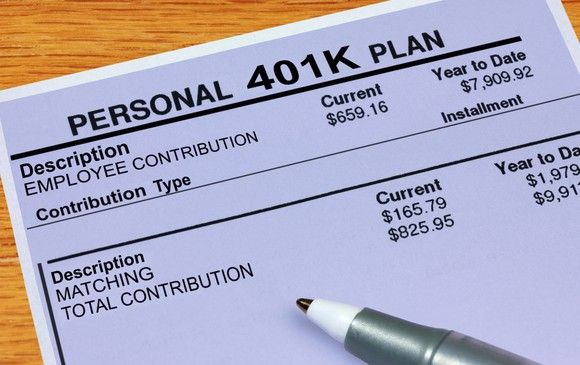The Road To Becoming A 401(k) Millionaire

Have you ever wondered what it takes to be a millionaire by saving just in your 401(k)?
It's a serious question. After all, roughly half of Americans think they need $1 million to retire on -- and where better to save that money than in a tax-advantaged account like your 401(k)?
The important thing is to start early and save as much as you can.
Working the math
That was pretty general, so let's put some numbers to it.
We'll try to assume fairly typical circumstances. Let's have our fictional worker currently earning the U.S. median household income of $61,372 (per the U.S. Census). That person contributes 10% of their pay to a 401(k) and receives a typical 4% company match. (Per a recent Fidelity study, it's actually more like 4.7%, but that's an increase from the recent past, so let's round down to be conservative.) Let's also assume that person receives a 2% raise each year, roughly in line with inflation, and that the funds in their 401(k) return 7% annually, similar with historical market returns.
After 30 years, that person will have $1,066,613. So with enough time, it's possible to build a $1 million 401(k) on a typical salary with a 10% savings rate.
Ways to get there faster
Of course, not everyone has 30 years until retirement -- so let's take a step back and consider the primary levers someone could pull to speed up their move to 401(k) millionaire status.
- Save more. Someone just like the person I described above who contributed 15% annually instead of 10% would get to millionaire status faster: They'd cross over after just 26 years instead of 30. And at 20%, that number shrinks to 24 years. Here are some tips for saving more money if this is the route you decide to travel.
- Match more. If you can't withhold more from your paycheck, another route is to try to convince your company to make its 401(k) match more generous. If you take the scenario I ran above at a 10% savings rate and boost the match to 5%, the worker will cross into 401(k) millionaire status in 29 years instead of 30 -- and 28 years if the match increases to 6%. Glassdoor has a great write-up on ways to convince your employer, if you're looking for more information.
- Earn more. Easier said than done, right? But the fact of the matter is that getting a raise is perhaps the biggest leverage point for increasing the speed with which you build your retirement savings.
That's for two reasons: First off, if you save the same percentage off a higher salary, that's more money. If someone just bumps up from 2% annual raises to 3% off the base case I shared above -- that is, 10% deferral to 401(k) and a 4% company match -- they'd achieve 401(k) millionaire status after 28 years.
But there's another benefit: If you've gotten used to living off a certain amount and then receive a sizable raise, you could just continue living as you had been... and bank all the extra money. That's where the math starts getting really interesting.
Let's take the 3% annual raise case I just described -- again, with the median household income -- and let's pretend that instead of continuing to defer 10% of their salary after the first year, the worker instead only grows their expenses 2% per year and banks all the rest. They'll cross into 401(k) millionaire status after just 24 years. If they only grow their expenses by 1% annually and bank the rest in their 401(k), they'll get to millionaire status after just 21 years.
Truth is...
The fact of the matter is that anyone hoping to achieve 401(k) millionaire status -- assuming they're starting today -- needs time and continual financial contributions to make it happen. Fortunately, the two trade off with each other, so if you have a great deal of one, you won't need as much of the other.
Regardless of whether or not you're on track to achieve millionaire status, the most important thing is to keep chipping away at your long-term retirement needs by contributing whatever you can toward your nest egg.
This article originally appeared in the Motley Fool. The Motley Fool has a disclosure policy.




















